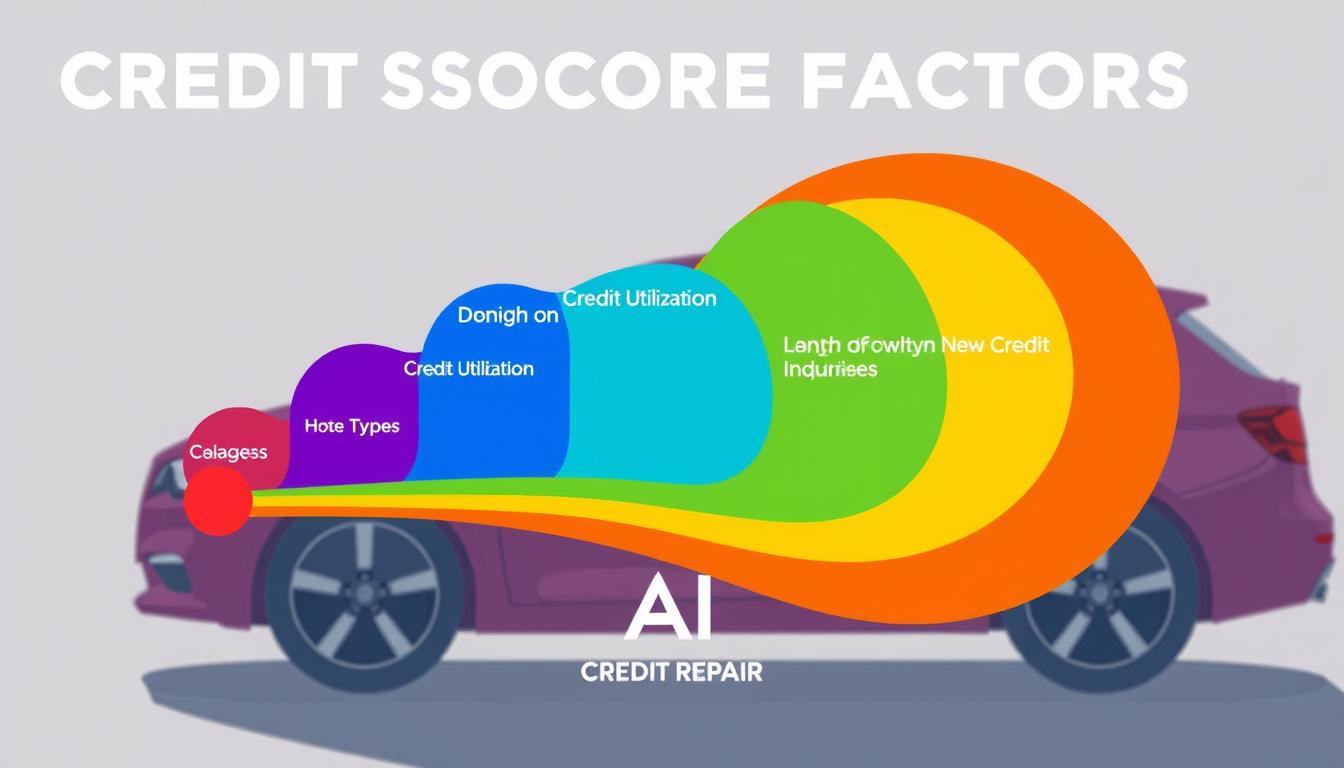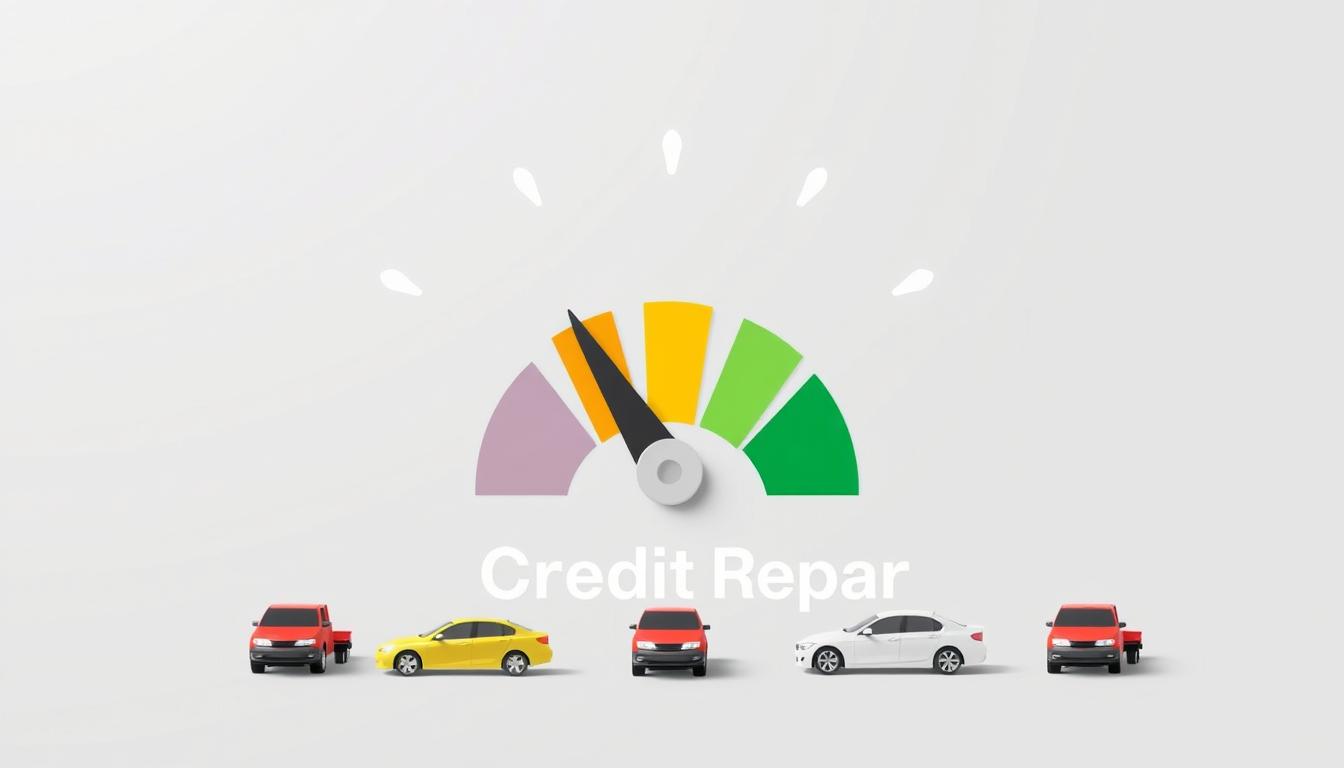Your credit score matters when renting a car. Rental companies use it to assess customer risk. Knowing their requirements can help you prepare for your next rental.
Credit score minimums differ between companies and locations. The type and value of the vehicle can affect the required score. Some rentals offer options for those with lower credit scores.
Key Takeaways
- Rental companies use credit scores to evaluate the risk of renting to a customer
- Minimum credit score requirements vary among rental companies and locations
- Factors like vehicle type and value can influence the credit score cutoff
- Options like debit card or cash deposits may be available for those with lower credit scores
- Checking rental policies and understanding credit score impacts on insurance requirements is important
Understanding Credit Scores for Car Rentals
Your credit score matters when renting a car. Rental companies use it to check your financial responsibility. Knowing how credit scores affect car rentals helps ensure a smooth experience.
The Role of Credit Scores in Rental Decisions
Rental companies rely on credit scores to approve applications and set terms. A higher score suggests lower risk of non-payment. This is crucial for companies to manage their finances.
A lower credit score might lead to higher deposits or extra fees. In some cases, it could even result in a rental denial.
Different Scoring Models Used by Rental Companies
Rental businesses may use various credit scoring models to evaluate applicants. The FICO score is most common, but some use alternatives like VantageScore.
These models weigh factors differently. They consider payment history, credit use, and credit history length. These elements help determine the minimum car rental credit score needed.
| Credit Scoring Model | Typical Credit Score Range | Factors Considered |
|---|---|---|
| FICO | 300-850 | Payment history, credit utilization, length of credit history, types of credit used, and new credit applications |
| VantageScore | 300-850 | Total credit usage, credit balances, credit mix, and other factors |
Learning about these scoring models can help you prepare for renting. It can also reduce the credit score impact on car rentals.

Minimum Credit Score Requirements Vary
Car rental companies have different credit score requirements. These can change based on location and vehicle type. Some agencies are more flexible, while others have stricter rules.
Typically, car rental credit scores range from 600 to 700. However, the minimum credit score to rent a car can be between 500 and 800. This depends on the rental company’s policies.
Some companies accept scores as low as 500. Others may require a minimum credit score of 700 or higher. Luxury vehicles often need higher credit scores.

Research the credit requirements before booking your rental car. Knowing the minimum credit score to rent a car helps ensure a smooth experience. This way, you’ll avoid surprises when picking up your vehicle.
Factors That Influence Rental Credit Score Cutoffs
Car rental credit score cutoffs vary based on several factors. These include the rental company’s location, policies, and the vehicle’s type and value. Each factor impacts how a company assesses a customer’s creditworthiness.
Location and Rental Company Policies
A rental company’s location can affect credit score requirements. Different areas have unique market conditions, regulations, and risk profiles. Companies in high-crime areas may set stricter credit score cutoffs to reduce risk.
Policies can differ between rental companies. Some may have more lenient standards, while others maintain strict credit score thresholds. These policies often reflect the company’s risk management strategy.
Vehicle Type and Value
The rental vehicle’s type and value influence credit score requirements. Luxury or high-end vehicles often demand higher credit scores. These cars cost more to replace or repair if damaged.
Economy or compact car rentals may have lower credit score thresholds. The financial risk for the rental company is typically less with these vehicles.
| Factors | Impact on Rental Credit Score Cutoffs |
|---|---|
| Location | Rental companies in high-risk areas may have stricter credit score requirements to mitigate their risk. |
| Rental Company Policies | Policies can vary among rental companies, with some having more stringent credit score cutoffs than others. |
| Vehicle Type and Value | Higher-end or more valuable vehicles may require a higher credit score, while economy cars may have lower requirements. |

These factors shape the rental company’s decision-making process. They help determine whether to approve or deny a customer’s rental application. Understanding these elements can help renters prepare for the application process.
What Credit Score Do You Need To Rent A Car?
Rental companies have varying credit score requirements for car rentals. Generally, a score of 600 or higher is considered safe. This helps avoid major issues when renting a vehicle.
The average credit score for car rentals usually falls between 600 and 700. However, some companies may accept scores as low as 500. Others might require scores of 800 or higher.
“While there’s no universal credit score requirement, having a score of 600 or higher will give you the best chance of renting a car without any hassle.”
Credit score requirements can differ based on several factors. These include the rental company’s policies, location, and the type of car you want. Some companies may be more flexible than others.

To ensure a smooth rental process, research the company’s requirements beforehand. This preparation increases your chances of getting the perfect rental car. It’s helpful regardless of your credit score.
Improving Your Credit Score for Easier Rentals
Don’t fret if you have a low credit score. You can take steps to improve it. This will boost your chances of renting a car without hassle.
By building good credit, you’ll enjoy better financial opportunities. You’ll also find it easier to secure car rentals.
Tips for Building and Maintaining Good Credit
Here are strategies to boost your credit score for smoother car rentals:
- Pay all your bills on time. Payment history greatly affects your credit score. Always pay bills by their due date.
- Reduce your credit utilization. Keep credit card balances low, below 30% of your limit. This shows responsible credit use.
- Check your credit report regularly. Look for errors and dispute them. This helps identify areas for improvement.
- Diversify your credit mix. Having different types of credit can positively impact your score. This includes cards, loans, and mortgages.
- Be patient and consistent. Building good credit takes time. Stick to these practices to see the best results.
These tips for building and maintaining good credit can help you how to improve credit score for car rentals. You’ll find it easier to secure the car you need.
Your credit score is crucial for car rentals. Taking time to ways to build credit for renting a car will pay off.
With effort and diligence, you’ll ensure a smoother rental experience. You’ll enjoy the freedom of the open road.
Alternatives for Renting with Poor Credit
Bad credit doesn’t mean you can’t rent a car. There are options beyond traditional rental processes. These alternatives can provide flexibility and accessibility, even with a low credit score.
Debit Card or Cash Deposits
One solution is offering a larger security deposit. This can be through a debit card or cash. A sizable deposit shows commitment and reliability to rental companies.
This approach may help you secure a rental despite a low credit score.
Alternative Rental Options
Beyond traditional agencies, other options exist for those with poor credit. These include peer-to-peer car-sharing services and car-sharing programs. Both offer more flexible and accessible rental options.
- Peer-to-peer car rentals: These services, such as Turo or Getaround, allow individuals to rent out their personal vehicles, often with more lenient credit score requirements.
- Car-sharing programs: Platforms like Zipcar or car2go provide members with on-demand access to a fleet of vehicles, sometimes without the need for a traditional credit check.
These alternatives can boost your chances of renting a vehicle. Even with imperfect credit, you have options to explore.
The Importance of Checking Rental Policies
Reviewing rental company policies is vital before booking a car. Understanding credit score requirements helps you prepare for the rental process. This step can prevent surprises or difficulties later on.
When examining car rental policies, focus on these key areas:
- Checking car rental company policies – Look at the minimum credit score requirements. Some companies may have stricter rules than others.
- Understanding rental credit requirements – Learn about security deposits, hold amounts, and extra fees. These may apply to renters with lower credit scores.
- Reviewing rental agreement details – Read the agreement carefully. Note any restrictions or limitations based on your credit profile.
Reviewing policies ensures a smooth rental experience. Understanding credit requirements helps you make informed decisions. This knowledge can prevent unexpected challenges when picking up your car.
“Renting a car is a breeze when you know the policies upfront. Taking the time to do your research can save you a lot of headaches down the road.”
Rental Car Insurance Considerations
Understanding rental car insurance is vital. Your credit score affects the coverage you need. Know these details before renting a car.
Credit Score Impact on Insurance Requirements
Rental companies use credit scores to set insurance needs. Lower scores may require extra insurance like collision damage waivers.
Higher credit scores might allow declining certain insurance options. This can lead to savings on rental costs.
Knowing how credit scores affect car rental insurance requirements helps make smart choices. It also aids in budgeting for your rental.
| Credit Score | Rental Car Insurance Impact |
|---|---|
| Excellent (760 and above) | May be able to decline optional insurance coverage |
| Good (700-759) | Rental company may require additional insurance, but at lower rates |
| Fair (640-699) | Rental company is likely to require more comprehensive insurance coverage |
| Poor (639 and below) | Rental company may require the most extensive insurance coverage, leading to higher rental costs |
Your credit score affects rental car insurance in important ways. Being aware of this helps ensure a smooth rental experience.
Conclusion
Car rental companies assess creditworthiness to manage risk, but there’s no universal credit score requirement. Factors like location, vehicle type, and company policies affect rental credit score cutoffs. Understanding these can help you prepare better.
For a smooth rental experience with a lower credit score, take steps to improve your standing. Build good credit habits and explore alternative options. Consider providing additional deposits or guarantees if needed.
Research rental policies and understand how your credit impacts the process. Be creative in finding solutions to meet your transportation needs. Stay vigilant, flexible, and proactive when planning your car rental.

